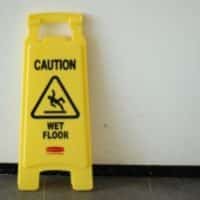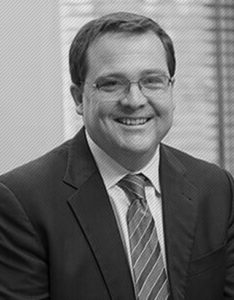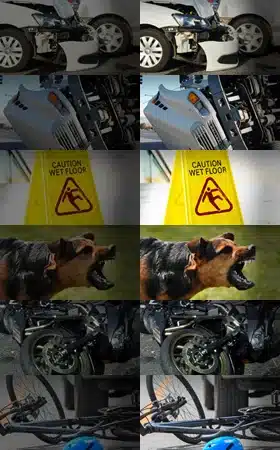What Do I Need to Know About Premises Liability in California?

When a visitor comes onto another person’s property, the expectation is that the premises is safe and free from anything that would cause harm.
However, the owners and occupiers of property do not always maintain their premises, and when an accident occurs because of a dangerous condition, those responsible for the property may be held liable for damages under the theory of premises liability.
The expert premises liability attorneys at the Allen Law Firm have years of experiences zealously advocating for the victims of premises liability and understand the intricate differences in premises liability law that may affect your claim.
What is Premises Liability?
Under California law, the owners and occupiers of land have a duty of care to maintain their premises in a reasonably safe condition.
The owners, occupiers, or controllers of land must maintain their property, inspect it for hazards, repair any potentially dangerous conditions, and give adequate warning to visitors about any hazards that may exist on the property. If whoever manages the property is negligent in their upkeep of the premises and a person is injured while visiting the injured person can file a lawsuit for compensation for their injuries under premises liability laws.
A premises liability lawsuit is similar to other cases of personal injury and negligence. In order to be awarded compensation for their claims, the victim of a premises liability injury must prove the following elements in court:
- The accused owned, occupied, or controlled the land
- The accused was negligent in the use or maintenance of the property
- As a direct result of the negligence, the victim was harmed on the premises
- The harm caused actual damages to the victim
If you are injured on someone else’s property, there may ultimately be many people responsible for the harm. Liability differs depending on the type of property and the number of people associated with it.
For example, if the injury occurs at a person’s home, the homeowner is likely the only one liable for the accident. However, if the injury occurs at a restaurant due to the negligence of an employee, the potential wrongdoers include the employee, their employer restaurant, and maybe even the property owner that the restaurant leases their building from.
Depending on the facts of the case, liability may rest with the homeowner, business owner, tenant or renter, property management company, parent company, retail center, restaurant, bar, store, amusement park, or an employee.
The Duty to Fix Hazards and Warn Visitors
Property owners and occupiers have an affirmative duty to routinely inspect their premises and fix any hazards that might harm visitors.
If the dangerous condition cannot be fixed right away, the manager of the premises has a duty to warn visitors about the hazard or guard against the hazard (for example, by putting up a barrier to keep people out of a dangerous area). Premises liability cannot be avoided by claiming that there was no knowledge of the dangerous condition on the property so long as the exercise of ordinary care would have led to the discovery of the hazard on the premises.
Factors considered when determining whether a property owner knew or should have known about a dangerous condition include:
- The obviousness of the danger,
- Complaints about the hazard,
- The amount of time the danger existed,
- Whether any injuries were caused by the dangerous condition, and
- If poor attempts were made to fix the problem.
Common Types of Premises Liability Accidents
Premises liability accidents can happen anywhere a dangerous condition or hazard exists, but some types of accidents happen more often than others. One of the most common types of premises liability accidents is a slip and fall. This can happen because of a wet or slippery surface, unknown substances on the floor, uneven or loose carpeting, uneven floors, uncovered cables or cords, broken or missing railings, failure to close off construction sites, and failure to place warning signs out about potential hazards.
Another common type of premises liability accident happens on construction sites. These accidents include crane accidents, electrocutions, ladder injuries, falls from significant heights, roofing accidents, scaffolding injuries, crushing accidents, and more. Other common premises liability accidents are caused by hazardous stairs and stairwells, amusement park and waterpark accidents, animal attacks, elevator and escalator injuries, and accidents in the home.
Compensation for Premises Liability Injuries
In a premises liability lawsuit, the accident victim can seek economic and noneconomic damages for the harm caused by the hazardous and dangerous conditions.
Economic damages refer to the direct financial harm caused by the injuries. This includes current and future medical bills, property damage, lost wages, and the loss of future income and benefits.
Noneconomic damages are compensation for the less tangible harms, such as pain and suffering, emotional distress, scarring, disfigurement, and the loss of enjoyment of life.
In the most egregious cases of premises liability, the court may also award the victim punitive damages. This award goes above and beyond economic and noneconomic damages. Punitive damages are meant to punish the wrongdoer for their actions and deter others who may consider similar actions in the care and maintenance of their property.
However, in order to award punitive damages in California, the victim must typically show that either the premises owner or occupier’s actions caused catastrophic injuries or wrongful death, intentionally destroyed evidence of liability, or intentionally caused the accident or injury.
If the premises liability accident was fatal, the family of the victim may also seek additional compensation for wrongful death. Compensation for wrongful death can include payment for final medical expenses related to the accident, burial costs, funeral bills, the loss of financial support, and the loss of love, security, and companionship of their loved one.
An experienced premises liability attorney will be able to review the facts of your case and advise you on what a full and fair settlement for your injuries should be.
Advocating for Victims of Premises Liability Cases
Do you have more questions about premises liability law in California or need an experienced attorney to review your case?
Call the office or contact us today at the Allen Law Firm to speak with an experienced premises liability attorney about your claims. Schedule a free and confidential review of your case with a seasoned attorney who will explain your legal options for compensation.

Scott Allen is the founder of Allen Law Firm. Scott earned his Juris Doctor degree from the Boalt Hall School of Law (now known as Berkeley Law) at the University of Berkeley in California and has over 20 years of experience practicing personal injury law. He is a member of the State Bar of California and has earned a Superb rating by Avvo. To learn more about Scott, read his full bio here.

